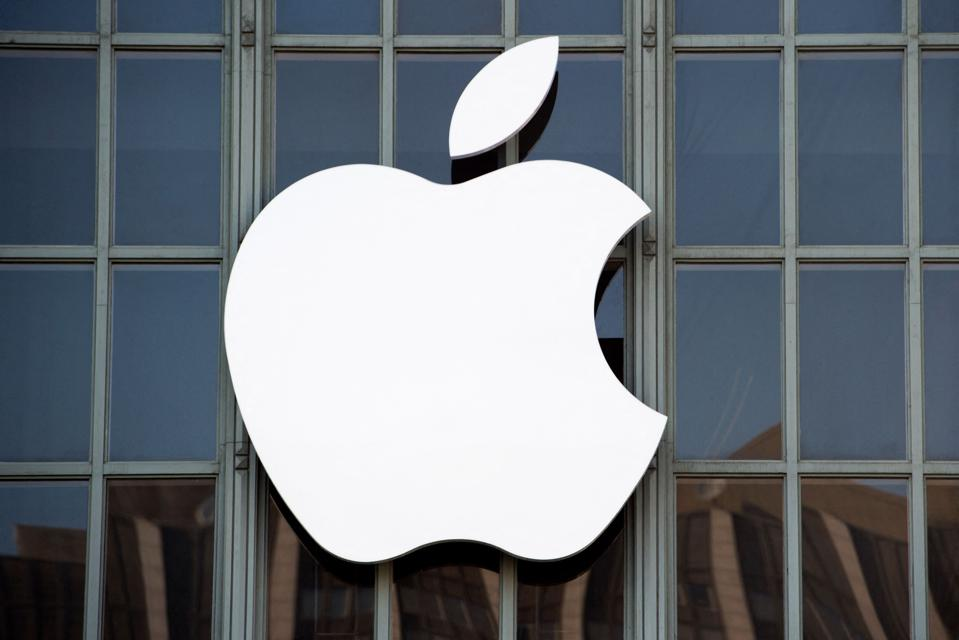Apple is a great company, except for when it isn't

Let's get this out of the way right up front: I don't have an iPhone, I have a Pixel. And I run Windows and Linux on my desktops, not MacOS. That said, I am a longtime Macbook Air fan, having had more than half a dozen (including the one I am typing this on), and a longtime iPad owner. To me, the Macbook Air is an amazing device — there are some that can duplicate the specs, but the build quality is unparalleled. Same with the iPad: I have tried multiple Android tablets and none were as good. And when I first got an iPhone way back when (I had a BlackBerry before that, as any good Canadian would), I was blown away by how revolutionary it seemed. Inventing that device was the modern equivalent of inventing the wheel or the internal combustion engine — a spectacular stroke of genius that changed the world forever (for better or worse, depending on your perspective on smartphones). Steve Jobs was definitely a genius on multiple levels, although he could be somewhat problematic as a person.
In any case, none of that means I won't criticize Apple when it deserves to be criticized, and there are plenty of times when that is true — for example, when the company brags about its commitment to privacy, but still hands over control of user data in China to the government, including access to the encryption keys. Or gives the National Security Agency in the US access to servers so the agency can mine that data in search of who knows what. Or is accused of benefitting from cheap supply chains where suppliers like Foxconn run what have been called "labour camps," and other companies use children as young as seven years old to dig up the precious minerals involved.
The most recent glaring flaw in what is otherwise a great company was highlighted with a court decision earlier this month, but in reality it has been obvious (to me, at least, and I'm sure to many others) for quite some time. The court ruling was just the most recent event in a lawsuit that has been in progress now for almost five years. The decision came from Judge Yvonne Gonzalez Rogers, a district court judge in California who has been hearing the case since 2021. Without going back through the weeds on every aspect of this case, it was launched by Epic Games in 2020, and its target was the heart of the iPhone money machine: namely, the 30-percent fee Apple takes whenever a user buys anything through an app. Handling transactions outside of the app store in order to avoid this 30-percent fee can get an app maker suspended or banned.
For all of Apple's genius and success, this is — and I would argue always has been — a reprehensible tax on app developers. This is a classic example of what antitrust theorists describe as "rent-seeking behavior," meaning the extraction of value based entirely on a monopoly market position (at this point, an Apple fan will undoubtedly point out that there are more Android phones than there are iPhones, which is true, and that Google also takes a cut of app-store revenue, which is also true; unfortunately, that makes it a duopoly rather than a monopoly, which is hardly any better for users). Judge Gonzalez Rogers ruled in September of 2021 that Apple's restriction on external payment mechanisms was unfair, the Ninth Circuit Court of Appeals upheld that decision in 2023, and the Supreme Court declined to hear an appeal last year. So far, so good.
So Apple changed its mind and allowed developers to link to alternate non-app-store payment methods, right? Yes. But it also required them to pay a 27-percent fee to do so, and it restricted the ways in which they could link from their apps, and the services that they could use. A few weeks ago, Judge Gonzalez Rogers ruled that Apple had "willfully violated" her initial injunction; the fact that the company clearly thought the court would tolerate such insubordination was "a gross miscalculation,” she said. The judge banned the company from collecting any revenue for the use of non-app-store payment methods, and from placing any restrictions on links to alternatives.
Note: In case you are a first-time reader, or you forgot that you signed up for this newsletter, this is The Torment Nexus. You can find out more about me and this newsletter in this post. This newsletter survives solely on your contributions, so please sign up for a paying subscription or visit my Patreon, which you can find here. I also publish a daily email newsletter of odd or interesting links called When The Going Gets Weird, which is here.
Tim Cook chose poorly

But that's not all. Far from it. The judge took the time to give Apple CEO Tim Cook and other senior executives a lecture on the wisdom of their decision, and even suggested that it might rise to the level of criminal contempt (she referred the case to the US Attorney to decide whether a charge is warranted). Gonzalez Rogers wrote that Apple presented evidence to the court of internal deliberations about its rule that were “tailor-made for litigation,” instead of the company’s actual internal discussions. “In stark contrast to Apple’s initial in-court testimony, contemporaneous business documents reveal that Apple knew exactly what it was doing and at every turn chose the most anticompetitive option,” Rogers wrote, and to hide the truth at least one senior exec lied under oath. Other senior executives — including Cook — not only failed to correct the facts, she said, but chose to "adopt the lies and misrepresentations to this Court.”
Gonzalez Rogers also accused Apple of withholding documentation from a meeting in June 2023 that included Cook, where executives discussed how they would comply with the original order. The judge said that Apple hid the existence of the meeting from the court until 2025, and that the company abused its legal privilege in order to avoid having to share those documents. It did so, Gonzalez Rogers said, because it wanted to "conceal Apple’s real decision-making process." App Store head Phil Schiller recommended that the company follow the order and not charge any commission on linking to alternative payment methods, but Cook ignored this advice and let CFO Luca Maestri convince him to try an end run. In what might qualify as the understatement of the year, Gonzalez Rogers said that Cook "chose poorly." And that's not all. From the New York Times:
Phil Schiller, who oversaw the App Store, worried that new fees could be illegal. He favored making online sales free of an Apple commission. Luca Maestri, who oversaw the company’s finances, disagreed. He favored charging a commission of 27 percent for online sales because it would protect the company’s business. Mr. Cook sided with Mr. Maestri, and Apple set out to justify that choice. It “manufactured” an independent economic study to legitimize its decision, a federal judge said in an angry ruling last week. It withheld thousands of documents under attorney-client privilege claims. And at least one of its executives lied on the witness stand.
As the Times describes the process, after Apple revealed its 27 percent commission in January of 2024, Epic filed a claim in court, arguing that the company wasn’t complying with Judge Gonzalez Rogers' order. The judge held a hearing at which Alex Roman, a VP of finance, testified that Apple had made its final decision on its commission on Jan. 16, 2024. Executives also testified that the Analysis Group report had helped them set the commission rate. Gonzalez Rogers questioned whether Apple was telling the truth and asked the company to provide documents about its plans, at which point the company produced 89,000 documents but claimed a third of them were confidential. The court disagreed, and forced Apple to turn over most of the documents. As she wrote, the documents made clear that Roman had lied under oath, that the Analysis Group report was a “sham” and that Apple had engaged in what she called a “cover-up."
I've been a business writer for a long time. I know how things work. Just because you are already a trillion-dollar-company with more cash on hand than most large Western nations doesn't mean you can let up on the gas for even a second. You have to keep the shareholders and big-cap investors happy, and that means dependable returns, and if you let even a few bucks slide on the app store then where does it stop? Pretty soon you're only valued at a few hundred billion and everyone thinks you screwed up. But at what point does it seem appropriate not only to hide documents, but have a senior executive lie on the stand? Apple isn't the one whose motto is "Don't be evil," but this is definitely verging on evil with a capital E (Google, meanwhile, has modified its old motto to "Don't be evil unless it is required to maximize shareholder value").
Mr. Cook, tear down this wall

One of the problems with the approach Apple decided to take, and the reason why Cook "chose poorly," is that the kind of behavior Gonzalez Rogers has called out is going to make it even harded for Apple to fight all of the other antitrust-related cases that are swirling around the company — including a Justice Department lawsuit accusing it of illegally maintaining a monopoly on the iPhone, along with a numbr of class-action lawsuits from app developers in the United States and anticompetitive investigations from the European Union, Britain, Spain and potentially other countries aimed at its management and control of the app store. “If you burn your credibility with the courts, the next judge is going to be a lot less willing to forgive,” Mark Lemley, a Stanford University professor of antitrust and technology law, told the Times. In future cases for Apple, he said, “it’s going to be easier for a judge to jump to the conclusion that people are lying.”
Her ruling will give prosecutors, regulators and judges ammunition against Apple’s defense strategies in a half dozen similar cases around the world, several antitrust and tech law professors and lawyers said. When the company tries to redact or withhold documents, prosecutors and judges can point to how those strategies were found to be “tactics to delay the proceedings” in the Epic Games case, these experts said. When Apple executives testify, prosecutors and judges could question their credibility because the company was found to “hide the truth” and “outright lie.” In the Justice Department’s antitrust case and others against Apple, said Colin Kass, an antitrust lawyer at Proskauer Rose, courts and regulators seeking Apple documents “will start the process by saying, ‘Open your doors, and don’t you dare try those silly little games you used in the past.’”
M.G. Siegler, a former Google Ventures partner who writes a newsletter called Spyglass (and whom I knew in a former life when I worked at Gigaom and he worked at TechCrunch) has an interesting potential solution for Apple that seems crazy — and is sure to draw some fire from angry investors — but just might pay off in the long run: Open up the App Store. In other words, don't just tear down a wall here or there, get rid of the walls altogether:
Apple doesn't have a lot of obvious levers left to pull in order to change the conversation. But they do have one. Tear down the App Store walls. Wall Street will hate the hit to Services revenue — especially if that line is about to take an even bigger hit with the Google Search default payments going away — but at some point you have to just do the right thing or risk losing everything. Cut the App Store fees substantially, and make them far more granular. Formalize the ability for developers to link out to other payment options without taking a cut. Hell, allow (vetted) third-party payment options to be brought into the in-app experience. In other words, compete!
Is Tim Cook likely to do this? I think there is probably a snowball's chance in hell. But as Siegler notes, the Apple CEO is fighting multiple wars on multiple fronts — antitrust actions in the US (both state and federal), class-action lawsuits from developers, not to mention similar kinds of action in the EU, the China problem, Trump's on-and-off tariff games, and a complete lack of anything compelling on either the artificial intelligence front or the virtual reality/augmented reality front. Opening up the app store might be a bit of a Hail Mary pass, but it could turn out to be a long-term win if he plays his cards right.
Got any thoughts or comments? Feel free to either leave them here, or post them on Substack or on my website, or you can also reach me on Twitter, Threads, BlueSky or Mastodon. And thanks for being a reader.



